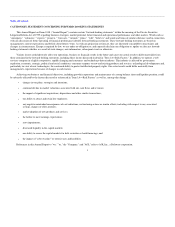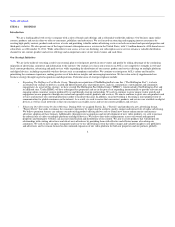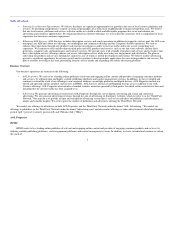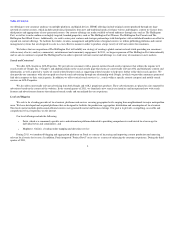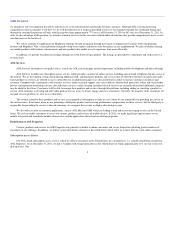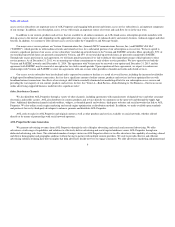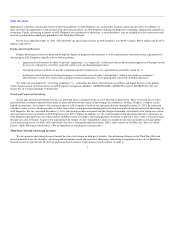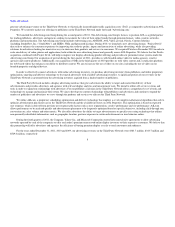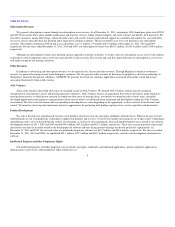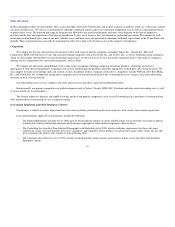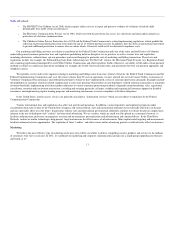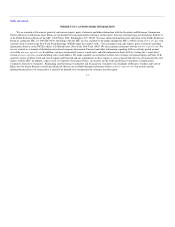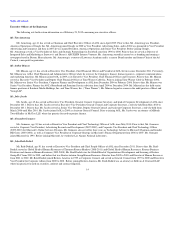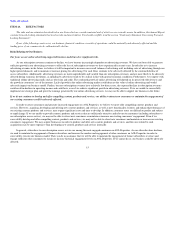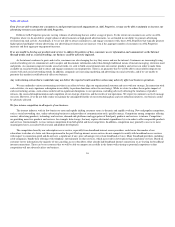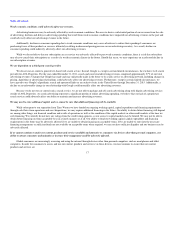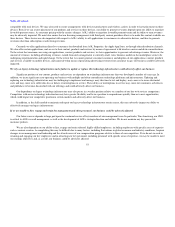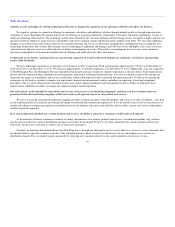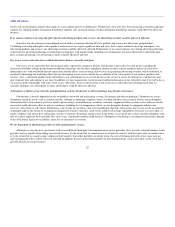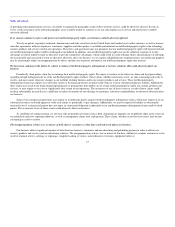America Online 2011 Annual Report Download - page 15
Download and view the complete annual report
Please find page 15 of the 2011 America Online annual report below. You can navigate through the pages in the report by either clicking on the pages listed below, or by using the keyword search tool below to find specific information within the annual report.
Table of Contents
• The PROTECT Our Children Act of 2008, which requires online services to report and preserve evidence of violations of federal child
pornography laws under certain circumstances.
• The Electronic Communications Privacy Act of 1986, which sets forth the provisions for access, use, disclosure and interception and privacy
protections of electronic communications.
• The Children's Online Privacy Protection Act of 1998 and the Federal Trade Commission's related implementing regulations, which prohibit the
collection of personal information from users under the age of 13 without parental consent. In addition, there has been an international movement
to provide additional protections to minors who are online which, if enacted, could result in substantial compliance costs.
Our marketing and billing activities are subject to regulation by the Federal Trade Commission and each of the states and the District of Columbia
under both general consumer protection laws and regulations prohibiting unfair or deceptive acts or practices as well as various laws and regulations
mandating disclosures, authorizations, opt-out procedures and record-keeping for particular sorts of marketing and billing transactions. These laws and
regulations include, for example, the Telemarketing Sales Rule, federal and state "Do Not Call" statutes, the Electronic Funds Transfer Act, Regulation E and
anti-cramming regulations promulgated by state Public Utilities Commissions and other regulatory bodies. Moreover, our ability to bill under certain payment
methods is subject to commercial agreements including, for example, the Credit Card Association rules and agreements between our payment aggregator and
telephone carriers.
We regularly receive and resolve inquiries relating to marketing and billing issues from state Attorney Generals, the Federal Trade Commission and the
Federal Communications Commission and, over the course of more than 20 years of operations, we have entered into several Consent Orders, Assurances of
Voluntary Compliance/Discontinuance and settlements pursuant to which we have implemented a series of consumer protection safeguards. Examples include
the prohibition of consumer retention-related compensation to call center personnel based either on non-third-party verified retention transactions or minimum
retention thresholds; implementing tools that mandate adherence to various consumer protection procedural safeguards around marketing, sales, registration,
cancellation, retention and reactivation transactions; recording and retaining particular call types; enabling and requiring full customer support for disabled
consumers; and implementing regular training programs and monitoring mechanisms to ensure compliance with these obligations.
In the United States, internet access services are generally classified as "information services" which are not subject to regulation by the Federal
Communications Commission.
Various international laws and regulations also affect our growth and operations. In addition, various legislative and regulatory proposals under
consideration from time to time by the United States Congress and various federal, state and international authorities have materially affected us in the past
and may materially affect us in the future. In particular, federal, state and international governmental authorities continue to evaluate the privacy implications
inherent in the use of third-party web "cookies" for behavioral advertising. We use cookies, which are small text files placed in a consumer's browser, to
facilitate authentication, preference management, research and measurement, personalization and advertisement and content delivery. In the Third Party
Network, cookies or similar technologies help present, target and measure the effectiveness of advertisements. More sophisticated targeting and measurement
facilitate enhanced revenue opportunities. The regulation of these "cookies" and other current online advertising practices could adversely affect our business.
Marketing
We believe the most effective type of marketing in the near term will be our ability to deliver compelling content, products and services to the millions
of consumers who visit us each day. In 2011, we combined our marketing and corporate communications groups into a single group supporting our business
and brand, as we
11


